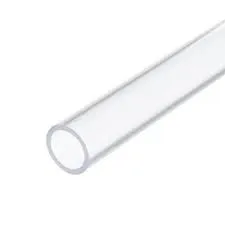Sep . 14, 2024 23:07 Back to list
pp welding rod
Understanding PP Welding Rods A Guide to Polypropylene Welding
Polypropylene (PP) welding rods are crucial components used in various industries for joining polypropylene materials. Known for their excellent chemical resistance, lightweight nature, and high tensile strength, PP welding rods are often employed in applications ranging from construction to automotive and even in the fabrication of chemical storage tanks. This article aims to shed light on the properties, applications, and advantages of using PP welding rods.
Properties of PP Welding Rods
PP welding rods are manufactured from high-quality polypropylene resin, which ensures durability and resilience. Unlike other welding rods, PP welding rods have a low melting point which facilitates their use in different welding techniques, including hot-air welding and extrusion welding. The ease of melting allows technicians to create strong bonds between polypropylene parts without compromising the structural integrity of the materials. Additionally, these rods are available in various diameters, ensuring compatibility with different welding equipment and techniques.
Applications of PP Welding Rods
The versatility of PP welding rods makes them suitable for a myriad of applications. One of the most common uses is in the manufacturing of tanks and pipes used in the chemical processing and wastewater treatment industries. Because polypropylene offers exceptional resistance to a wide range of chemicals, it is ideal for transporting corrosive substances safely.
pp welding rod

Furthermore, PP welding rods are utilized in the automotive industry for repairing parts made of polypropylene, such as bumpers and dashboards, which require strong, flexible bonding solutions. In the construction sector, they can be used to join sheets for roofing, wall panels, and various other structural elements. Their application even extends to the production of recreational items, such as kayaks and other watercraft, where durability and water resistance are paramount.
Advantages of PP Welding Rods
Utilizing PP welding rods comes with several noteworthy advantages. First and foremost, their ease of use allows for efficient welding operations, reducing labor costs and minimizing time spent on repairs or constructions. The strong bonds formed through proper welding techniques ensure longevity and reliability, welcoming fewer maintenance requirements down the line.
Moreover, the lightweight nature of polypropylene makes it easier to handle and transport, adding to the overall efficiency of projects. PP welding rods also contribute to environmentally friendly practices, as polypropylene can be recycled, aligning with sustainability goals.
In conclusion, PP welding rods offer a robust solution for joining polypropylene materials across diverse applications. Their unique properties, ease of use, and environmental advantages make them an excellent choice for industries looking to maintain efficiency while ensuring reliability and durability in their projects. Whether in waste management, automotive repairs, or construction, PP welding rods are an indispensable tool in modern manufacturing and repair practices.
-
High-Quality PPR Pipes and Fittings Durable ERA PPR & PVC PPR Solutions
NewsJul.08,2025
-
Black HDPE Cutting Board - Durable, Non-Porous & Food Safe HDPE Plastic Cutting Board
NewsJul.08,2025
-
High-Quality CPVC Panel Durable HDPE & PVC Panels Supplier
NewsJul.08,2025
-
Double PE Welding Rod Supplier - High Strength, Durable & Versatile Welding Solutions
NewsJul.07,2025
-
High-Quality PVC-O Pipe Supplier Durable 75mm PVC Pipe & Connections Leading PVC Pipe Company
NewsJul.07,2025
-
HDPE Drainage Pipe Supplier – Durable & Corrosion-Resistant Solutions
NewsJul.06,2025

